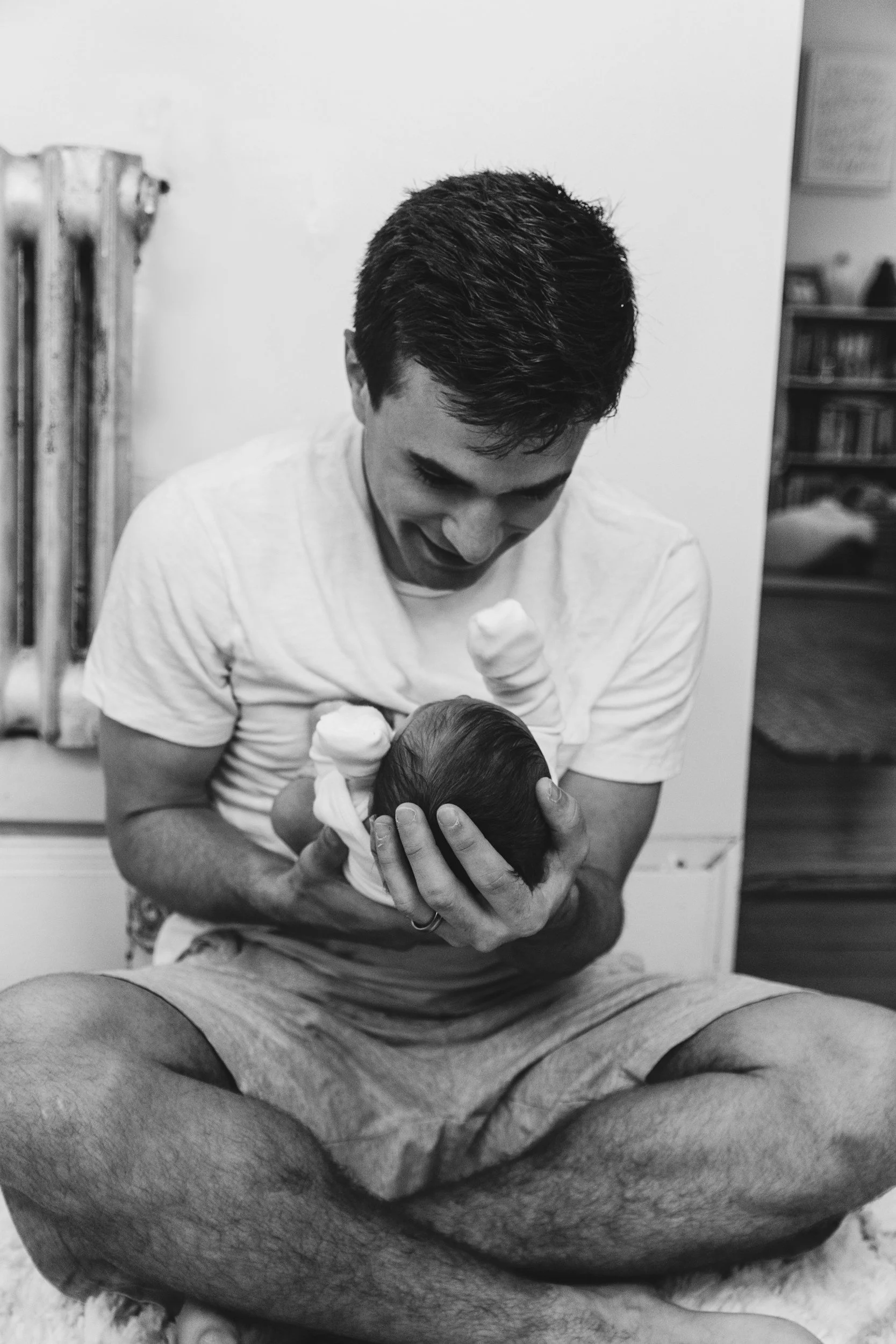
Perinatal Therapy
In Person in Petaluma, California | Online Therapy in California
Parenthood begins long before birth -
and so does the need for support.
Let’s talk about the emotional side of trying, carrying, birthing, raising and mourning a tiny human.
Trying to Conceive
Having a baby is supposed to come “naturally,” right?
So what happens when it’s harder than it looks? Maybe you’re deep in the world of tracking cycles, doing IUI or IVF, or exploring non-traditional paths to parenthood, and it’s taking a toll. The stress, the waiting, the constant hope and disappointment…it’s a lot. Maybe you find yourself feeling isolated, frustrated, or like your body is working against you.
Therapy can be a space to process all of it—the grief, the pressure, the decisions.
My job is to help you reconnect with yourself in the middle of a process that often feels out of your control. If you’re in the thick of trying to conceive and feeling emotionally worn out, you don’t have to carry it alone. Let’s talk.
Pregnancy
Pregnancy can be a mix of excitement, fear, joy, and uncertainty—sometimes all in the same day.
You might be told to “enjoy every moment,” but that can feel impossible if you're dealing with anxiety, irritability, intrusive thoughts, panic, or just a sense that something isn’t quite right. Mood and anxiety disorders can show up during pregnancy, not just after, and it’s more common than people think.
Up to 1 in 5 women experience mental health challenges during pregnancy. If you're also parenting littles or older children while pregnant, the physical and emotional toll can be even greater.
If you're feeling overwhelmed, disconnected, or more worried than usual, let me help you feel more grounded. You don’t have to wait until after the baby comes to ask for help—this chapter matters too, and so do you.
Postpartum Mothers
Parenting not what you expected?
Social media, parenting books, and well-meaning advice can make it seem like caring for a baby is all bliss and snuggles, but it’s okay if that’s not your reality.
Many new moms chalk up their sadness, irritability, or overwhelm to the “baby blues,” but if those feelings last longer than two weeks, you may be experiencing a postpartum mood or anxiety disorder.
You’re not broken, and you’re definitely not alone.
I work with new parents navigating postpartum depression, anxiety, intrusive thoughts, and the huge identity shift that comes with becoming a parent.
Whether you’re just not feeling like yourself or struggling more than you thought you would, therapy can help. Come talk to me.
Grief & Loss
Pregnancy loss is awful. Grief is terrible.
Whether you’ve experienced a miscarriage, stillbirth, or you're now pregnant after loss, this pain is real, and it deserves space. This kind of loss is often invisible, but the impact runs deep. People may expect you to “move on,” and the world often does. But you likely haven’t, and that’s okay. Learning to live in a world that keeps moving while you’re grieving can feel overwhelming.
Therapy offers a space to slow down, honor your baby, and figure out what healing looks like for you.
If you’re pregnant again after loss, it’s okay to feel joy and fear at the same time. Grief isn’t something we get over, it’s something we carry. I’m here for you, reach out when you’re ready.
Fathers & Non-Birthing Parents
You didn’t give birth so what do you have to complain about?
Becoming a parent changes everything, not just for the birthing parent. Fathers and non-birthing parents experience their own major transition, too. Between sleep deprivation, new routines, and the shifting sense of identity that comes with welcoming a baby, it’s common to feel anxious, irritable, or disconnected.
About 1 in 10 fathers experience postpartum depression, and that risk increases by 50% if their partner is struggling with postpartum mental health challenges. These numbers are under represented because often fathers and non-birthing partners are screened. How many fathers do you know have gone to the doctor after they become a parent for a check in?
Sometimes taking care of yourself is the best way to take care of your baby and your partner. I support all parents in this season of life, please don’t hesitate to reach out.
Common Questions, Honest Answers
-
Perinatal therapy supports individuals during pregnancy and the postpartum period (and often well beyond). It’s a space to process the emotional, mental, and identity shifts that come with becoming a parent. This can include anxiety, depression, intrusive thoughts, relationship changes, and more.
-
Nothing is wrong with you. Social media and surface level conversations rarely show the full picture. I’m here to talk with you about your experience, without judgment or shame.
-
It’s one of the most common questions I hear—and it makes so much sense. When you’re not sleeping, your hormones are crashing, your body doesn’t feel like yours, and your brain is on high alert… “normal” can feel like a distant memory.
The short answer? Yes. But that “normal” might look a little different than it did before, and that’s okay.
We’ll work together to understand what’s going on in your nervous system, support your mental health, and rebuild your sense of self, one that honors both who you were and who you’re becoming.
You don’t have to wait until you’re in crisis to reach out. If you’re asking this question, that’s reason enough to start.
-
Yes. Every parent is different and some new mom’s may want the space away from their baby to talk about tough feelings, and that’s okay too. It is something we can also explore together. In session, we can talk around diaper changes, fussing, and feeding, no judgment here.
-
Yes, absolutely.
While most conversations around perinatal mental health focus on the birthing parent, many dads and partners also experience anxiety, depression, overwhelm, and identity shifts during this time. You might feel pressure to be the “rock,” to keep everything running smoothly while watching your partner struggle, or maybe you’re struggling too, and unsure if it’s okay to say that out loud.
You don’t need to give birth to be deeply affected by this transition. Whether you're feeling helpless, shut out, exhausted, or unsure how to support your partner (or yourself), therapy can be a space for you, too.
-
Yes, and you don’t have to go through this alone.
Pregnancy after loss is an incredibly tender, complicated experience. It’s common to feel hopeful one minute and terrified the next. You might find yourself holding your breath at every appointment, overanalyzing every symptom, or feeling emotionally disconnected as a way to protect yourself from more pain.
Therapy can help hold space for all of it, the grief, the anxiety, the longing, the numbness, and the hope. We can talk openly about the fears others may not understand or know how to respond to. You don’t have to pretend everything is fine here.

You don’t have to navigate this journey alone.
Whether you're trying to conceive, expecting, or adjusting to life with your little one, support is here. Book your free consultation and let's talk about what you're really experiencing





